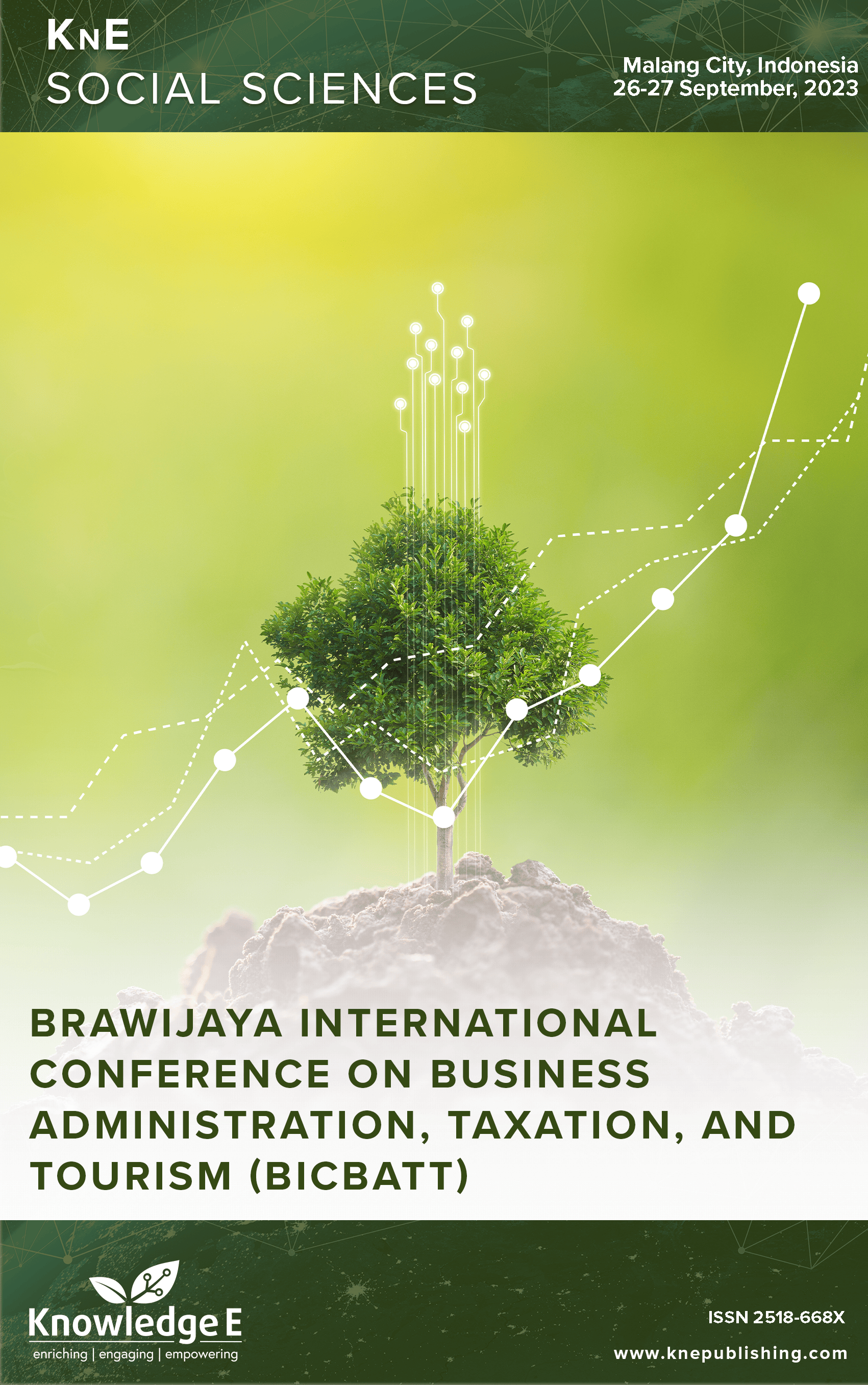How Does Self-Efficacy and Perceived Organizational Support (POS) Increase Organizational Commitment? Mataram Evidence from the Lombok Raya Hotel
DOI:
https://doi.org/10.18502/kss.v9i11.15752Abstract
Organizational commitment, with an emphasis on organizational dedication. Successful organizations typically have a highly dedicated staff. Some aspects impact organizational commitment, such as self-efficacy and perceived organizational support. This research aims to determine the effect of self-efficacy and perceived organizational support (POS) on organizational commitment (study on Lombok Raya Hotel employees). This research is quantitative; the data used are primary and secondary. 103 respondents who worked at the Lombok Raya Mataram Hotel completed questionnaires for this study. Then, this study employed conventional assumption tests, such as normality tests, multicollinearity tests, and heteroskedasticity tests. T-tests, f-tests, coefficient of determination tests, and multiple linear regression tests are some of the hypothesis tests (R2) used. According to the study’s findings, organizational commitment is positively and significantly influenced by self-efficacy, POS, and all these variables together. The outcomes of descriptive data analysis show that staff members of the Lombok Raya Mataram Hotel are worried about the future and sustainability of the company or hotel.
Keywords: perceived organizational support (POS), organizational commitment, self-efficacy
References
Suparyadi. Manajemen Sumber Daya Manusia [Human Resource Management]. Yogyakarta: CV. Andi Offset; 2015.
Luthans F. Organizational behavior. New York: McGraw-Hill; 2011.
Heller R. Motivating people. London: Dorling Kindersley Book; 1998.
Rhoades L, Eisenberger R. Perceived organizational support: A review of the literature. Journal of Applied Psychology. 2002;87:698–714. DOI: https://doi.org/10.1037//0021-9010.87.4.698
Gillet N, Huart I, Colombat P, Fouquereau E. Perceived Organizational support, motivation, and engagement among police officers. Professional Psychology: Research and Practice. 2013;44(1):46–55. DOI: https://doi.org/10.1037/a0030066
Bandura A. Self-efficacy: The exercise of control. New York: W.H. Freeman and Company; 1997.
Robbins SP, Judge TA. Organizational behavior. 13th ed. USA: Pearson International Edition, Prentice-Hall; 2009.
Fahrizal K, Wayan Mudiartha Utama I. Pengaruh Persepsi Dukungan Organisasi Terhadap Komitmen Organisasional Dan Turnover Intention Karyawan Hotel Kajane Mua Ubud [The influence of perceived organizational support on organizational commitment and turn-over intention of Kajane Mua Hotel Ubud Employees]. E-Jurnal Manajemen Univ Udayana.
Sugiyono. Quantitative research methods. London: Alfabeta; 2018.
Malkova F. The influence of transformational leadership style and self-efficacy on organizational commitment (At Hotel Grand Zuri Pekanbaru). Jurnal Online Mahasiswa Fisip. 2017;4(2):1-15.
Dewi NA. The effect of self-efficacy on organizational commitment in the Rich Jogja Hotel Employees. Acta Psychologica. 2020;2(2):122-136. DOI: https://doi.org/10.21831/ap.v2i2.32750
Maria S, Lestari D, Rochaida E, Darma DC, Rahmawati HR. Self-efficacy, organizational commitment, and employee performance-from public office. Cactus - Tourism Journal. 2021;1(3):6–15. DOI: https://doi.org/10.24818/CTS/3/2021/1.01
Fang M. Job characteristics and self-efficacy as predictors of organizational commitment. University of Nevada; 2001. pp. 1–52.
Cahayu NMA. The effect of perceived organizational support on organizational commitment with job satisfaction as a mediating variable. E-Journal of Management. 2019;8(10):6042-6058.
Anggita RP, Pratiwi M. Perceived organizational support for organizational commitment and employee performance. International Journal of Business and Management. 2021;22(1):111-120.
Fitria AA. The effect of perceived organizational support (POS) on organizational commitment and employee performance. Journal of Business Administration ( JAB). 2018;56(1):1-8.
Ersoy A. The effect of perceived organizational support on organizational commitment: evidence from the hotel industry. International Journal of Business & Management Studies. 2014;515-523.
Purnami PR. The effect of compensation and perceived organizational support on organizational commitment and employee performance of Balimed Karangasem Hospital. Journal of Economics and Business. 2017;4(1):95-107.
Marwan AR. The effect of locus of control and self-efficacy on employee organizational commitment at the job training center (Blk) in Ternate City. Synergy Journal of Management. 2018;6(1):1-97.

